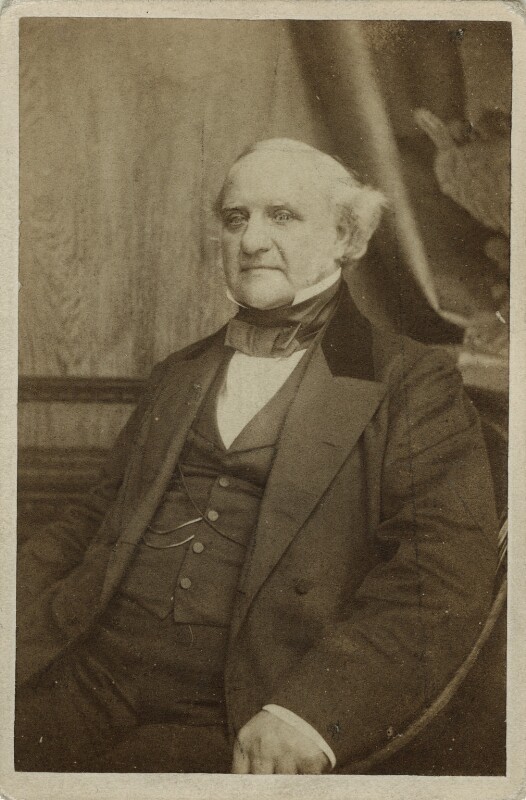
George Peabody, photographed by Henry Rigge of Bond Street for this albumen carte-de-visite, in the early-mid 1860s. © National Portrait Gallery, London. NPG x12704
....while the need for adequate and inexpensive housing for the urban working class was widely discussed in England, his decision to make his handsome gift for such an enterprise reflected his sensitive awareness of the blight of slums and his realization of their handicap to hardworking laborers living in them. At the same time, his gift, coming as it did in the midst of strained relations between England and the United States during the Civil War, reflected his long-sustained efforts to improve understanding and co-operation between the two countries. — Curtis x
The career of George Peabody is an exemplification of much that the nineteenth century found admirable. Beginning his working life honest but poor, Peabody always worked hard.... he was not ostentatiously religious. Rather, he carried out the puritan doctrine of the stewardship of riches: it has been estimated that he gave away more than $8,600,000. He ended his life wealthy and respected. — Burk
- Peabody Estate, Lawrence Street
- Peabody Square, Blackfriars Road
- "How to Take a Hint" (cartoon in which Peabody shows the way to John Bull)
- "Mr George Peabody" (biographical account in the Illustrated London News of 1862)
- "Mr Peabody at the Industrial Exhibition, Guildhall" (article in the Illustrated London News of 1866)
Bibliography
Burk, Kathleen. "Peabody, George (1795–1869), merchant banker and philanthropist." Oxford Dictionary of National Biography. Online ed. Web. 23 May 2019.
Curtis, Merle. Foreword. George Peabody, A Biography. By Franklin Parker. Rev. ed. Nashville and London: Vanderbilt University Press, 1995. ix-x.
Created 24 May 2019